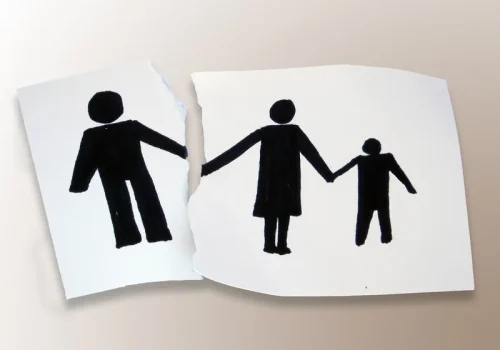Mixing Warfarin and Alcohol: Is It Safe?

Simply eating grapes or drinking grape juice might be a way to get resveratrol without drinking alcohol. Red and purple grape juices may have some of the same heart-healthy pluses of red wine. Resveratrol might help prevent damage to blood vessels, lower low-density lipoprotein (LDL) cholesterol, also called the drinking and blood clots “bad” cholesterol, and prevent blood clots.

Does Alcohol Thin Your Blood?
That said, some studies have found that low to moderate consumption of alcohol is generally safe for people on blood thinners. According to research, having one or two drinks infrequently is considered safe. Alcohol has long held a prominent place in many societies and cultures. While moderate alcohol consumption may offer some small cardiovascular benefits, the risks of consumption may outweigh these potential benefits. Additionally, drinking excessively has been shown to increase the risk of accidents and injuries. Longer-term, it may impair liver function, increase the risk of certain cancers and adversely affect cognitive and mental health.

Resveratrol in red wine
The amount of alcohol a person consumes daily contributes to how it affects blood and heart health. New research has found that moderate consumption, meaning one or two drinks per day, can decrease cardiovascular disease risk. While the mechanism behind why this happens is unclear, the theory is that this moderate consumption reduces stress reactivity in the brain. Stress is a substantial contributing factor to heart disease. While alcohol may have blood thinning effects, it may also increase the risk of cardiovascular conditions and blood clots.
What Happens to Your Body When You Drink Alcohol Regularly
Exercise helps to improve circulation and lessens venous insufficiency symptoms. This article looks at what people will need to avoid with DVT. MC and MJ originated and designed the study and drafted the manuscript. MC and YJ contributed to the data extraction and data analyses. Even if you don’t reach for the saltshaker often, you may get more salt than you need. Depending on age and health, most adults should stay under 2,300 milligrams of sodium a day.


Managing alcohol intake is crucial not only for physical health but also for preserving your mental well-being. Alcohol has been shown to disrupt neurotransmitters, which can elevate the risk of anxiety, depression, impulsivity and psychosis over time, says Diaz. Chronic alcohol consumption can also lead to a deficiency in vitamin B1 (thiamine), potentially resulting in serious neurological disorders like Wernicke-Korsakoff syndrome, she adds.
- When you overindulge in alcohol, your liver, which is responsible for breaking down toxins like alcohol, can become overworked, explains Andrews.
- Alcohol, in low to moderate amounts, thins the blood, potentially reducing the risk of clots.
- Long-term heavy use of alcohol also may give you alcoholic fatty liver disease, a sign that your liver doesn’t work as well as it should.

Excessive alcohol intake, in particular, can adversely impact various aspects of your well-being, from your immediate safety to your long-term health. You may know about the dangers of blood clots and high levels of fats and cholesterol in your body. Studies of heavy drinkers also show that they are more likely to have trouble pumping blood to their heart and may have a higher chance of dying from heart disease. The American Heart Association and National Heart, Lung, and Blood Institute advise against starting to drink alcohol just to prevent heart disease.
Alcohol Consumption Recommendations and Limits
Then, instead of helping, the clots become harmful because they keep blood from flowing through your veins and arteries as it should. And that can lead to some serious stuff, like stroke, heart attack or pulmonary embolism. Yet there are other, less risky ways to protect your arteries — for example, by eating a plant-based diet and exercising. The American Heart Association doesn’t recommend drinking alcohol solely to protect your blood vessels and improve your circulation. But sometimes, a blood clot can form in — or travel to — an artery that supplies your heart or brain with oxygen-rich blood.
- Some of the factors that raise your risk of blood clots are inherited, but there are steps you can take to reduce your overall risk.
- Dehydration is thought to increase the odds of developing a blood clot.
- Alcohol might also slow down the rate at which your body breaks down and removes the blood-thinning drug.
- There are no specific warnings about consuming alcohol while taking other blood thinners.
- He is a registered physician in vascular interpretation (RPVI).
- Heads up that some of these “don’ts” don’t apply if you’re on one of the newer blood thinners, like Rivaroxaban (Xarelto®) or Apixaban (Eliquis®).
What if you have symptoms?
- Some people take medications to prevent the blood from clotting or slow the clotting process.
- The symptoms and effects of blood clots vary greatly depending on where they’re found in the body.
- Traumatic injuries are one of the most common causes of bleeding, but sometimes you can bleed spontaneously.
- Therefore, effective treatment and prevention of DVT with drugs like warfarin is important.
- People can speak to their doctor if they think they or someone they know may have AUD.
- “It causes redness, tenderness, or pain over varicose veins,” Dr. Scovell says.
It is also important to avoid dehydration, so people should drink plenty of fluids, such as water, throughout the day. The National Heart, Lung, and Blood Institute recommends the following advice for recovery from and prevention of venous thromboembolism (VTE), which includes DVT and pulmonary embolism. Those with DVT who take warfarin — a type of blood thinner — may need to be cautious about their vitamin K intake. Above all, know your risk factors in advance, so you can take the right precautions to keep yourself healthy. Data from three studies showed that drinking one to four cups of coffee a day can raise your chances of DVT by 11%, and if you drink more than five cups a day, you can lower your odds by 25%. It can also limit your kidneys’ ability to excrete broken-down toxins or drugs, such as your prescribed blood thinner.


Bir cevap yazın
Yorum yapabilmek için giriş yapmalısınız.